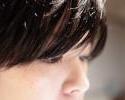For people with obsessive-compulsive disorder (OCD) who do not respond well to other treatments, research data supports the use of deep brain stimulation (DBS). DBS involves placing electrodes in specific brain regions to electrically stimulate those areas.
Based on research evidence from seven high-quality studies, two DBS techniques have been endorsed by the American Association of Neurological Surgeons for select OCD patients. These techniques may benefit the 40 to 60 percent of OCD sufferers who do not experience adequate symptom relief with psychotherapy and/or medications.
The investigators, including Dr. Clement Hamani of Toronto Western Hospital, concluded that bilateral stimulation (on both sides of the brain) of either the sub-thalamic nucleus, or the nucleus accumbens should be considered effective OCD treatments. In clinical trials, stimulating these brain regions improved OCD symptoms by about 30 percent. Evidence for recommending unilateral DBS treatments (performed on one side of the brain) was found insufficient.
Because DBS is a specialized treatment involving a small number of patients, the research review notes that studying DBS effectiveness for OCD is difficult. The investigators suggest future research should seek to identify the most effective brain targets, and the specific types of patients most likely to benefit from DBS.
Although limited research data was available, DBS was approved by the Food and Drug Administration under a humanitarian device exemption. Dr. Hamani and colleagues note in their report that several safeguards are in place to prevent inappropriate use, or overuse of DBS for OCD.
The research team encourages specialists and neurosurgeons to continue collaborating so those with difficult to treat OCD have DBS as a treatment option.
Source: Science Daily
Photo credit: Florian Lehmuth






